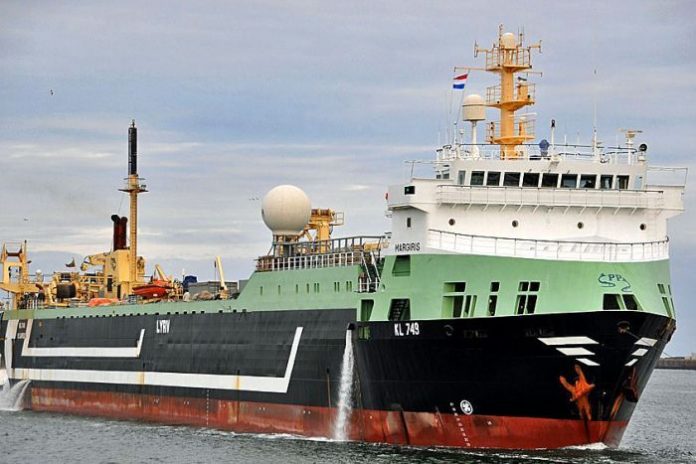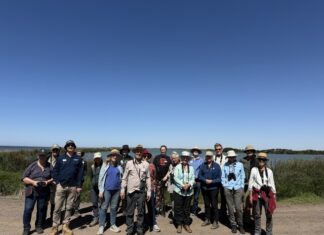By JOHN VAN KLAVEREN
PROTESTERS will rally against a controversial Geelong-based floating fishing factory this weekend despite Federal Government releasing scientific evidence that its operations are sustainable.
Victoria Marine Animal Defenders has organised the protest for 11am Sunday at Eastern Beach.
The Stop the Trawler protest will ask the Government to ban the Seafish Tasmania’s 90- metre trawler, to be based in Geelong.
A VMAD Facebook post publicising the protest said the trawler would “decimate” fish stocks and threaten marine food sources “only just making a comeback in population”.
“In addition, the by-catch of the trawler will be dolphins, seals and collateral damage to non-targeted fish species. Hundreds if not thousands of lives will be lost to the Geelong Star super trawler.”
The vessel left Cape Town, South Africa, en route to Geelong yesterday.
The Independent reported three weeks ago that the 3181-tonne trawler would be based in Geelong to fish for a 16,500-tonne quota of mackeral and redbait in a small pelagic fishery (SPF) three kilometres offshore and stretching from Queensland to Perth.
The trawler has a crew of 34 and a dozen shore-based jobs in provisioning and transport.
Agriculture parliamentary secretary Senator Richard Colbeck released scientific findings that the fishery was sustainable.
“The Australian Government has done exactly what we said we would do, by conducting more science on small pelagic fish species,” he said.
“This is part of our commitment to a sustainable fishery that is there for all fishing groups and future generations to enjoy.
“The results released today confirm earlier work undertaken previously in the SPF that the eastern jack mackerel stock is in a very healthy state.
“(This) follows the release of more science from the CSIRO earlier this year which found that tuna, seals and penguins are not dependent on SPF target species for their diet.
“Another recent scientific report found that localised depletion is unlikely as the SPF target species are highly mobile and local areas replenish quickly.”
The report said the size of the adult spawning stock was around 157,000 tonnes, considered large enough to enable a “modest” commercial catch to be taken without adverse effects.









